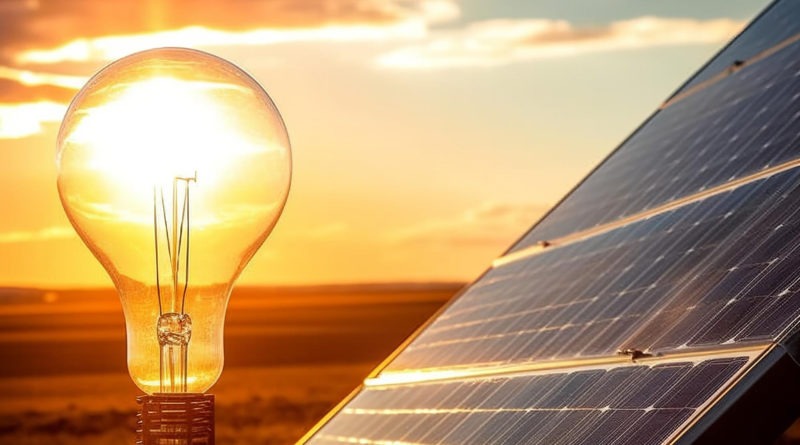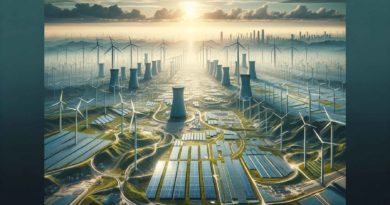Rapid Shift: Wind and Solar Surpass Fossil Fuels in EU Electricity Generation
Amidst a transformative energy landscape, the European Union witnessed an unprecedented collapse in coal and gas electricity generation throughout 2023, as revealed in the latest annual review by clean energy think tank Ember. Wind and solar power emerged as the champions, collectively accounting for a record 27% of the EU’s electricity production, marking a significant milestone in the region’s energy transition. This shift signifies not only a move towards renewable energy but also underscores the broader implications for global climate goals and energy security.
Renewables, particularly wind power, experienced remarkable growth, with wind generation soaring by 13% in 2023, reaching 18% of the EU’s power mix. This surge surpassed fossil gas, which contributed 17%, while solar energy accounted for 9% of EU electricity. Overall, renewables surged to an all-time high of 44% share in the EU’s power production, with hydro power also rebounding from previous lows.
Germany emerged as a leader in the wind revolution, boasting the highest amount of wind power generation at 141 TWh, followed closely by France and the Netherlands. These developments reflect a concerted effort towards a cleaner and more sustainable energy future, aligned with the EU’s ambitious targets to slash greenhouse gas emissions by 90% by 2040.
The decline in coal and gas generation, coupled with falling electricity demand, contributed to a record drop in power sector emissions. However, challenges persist, with renewable growth lagging behind the pace required to meet the EU’s climate objectives. While wind and solar adoption is accelerating, there remains a pressing need for system-wide enablers such as grid enhancements and energy storage to support this transition.
Despite the progress, energy experts caution against complacency, emphasizing the importance of rapid deployment of renewables to mitigate the risks associated with fossil fuels. Central and Eastern European countries, in particular, are urged to accelerate their transition to clean energy to avoid falling behind and capitalize on the economic opportunities presented by renewables.
Looking ahead, the European Commission’s announcement of a new target to slash greenhouse gas emissions by 90% by 2040 signals a decisive step towards decarbonizing the power sector. This ambitious goal underscores the urgent need to prioritize renewables and phase out fossil fuel infrastructure. However, climate justice groups argue that these targets fall short of the EU’s historical obligation to achieve real zero emissions well before 2050.
Europe’s energy landscape is rapidly evolving, with wind and solar power leading the charge towards a sustainable future. As the EU strives to meet its climate targets and enhance energy security, decisive action is needed to accelerate the transition to clean energy and ensure a brighter, greener future for generations to come.




